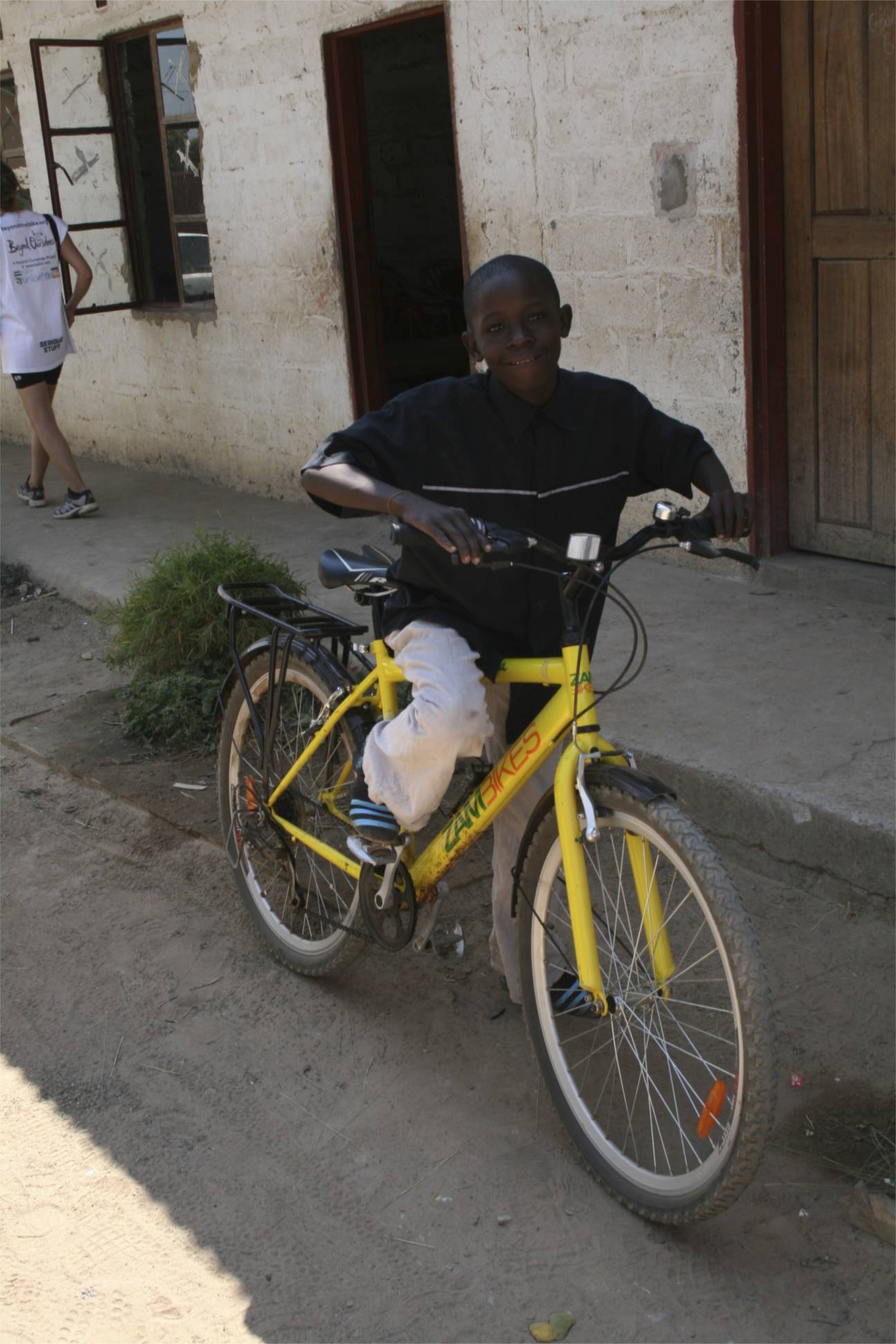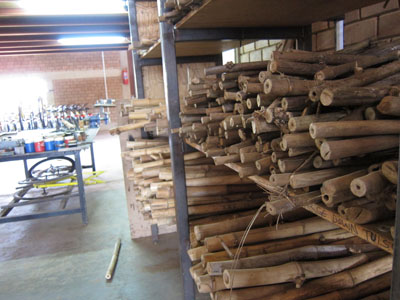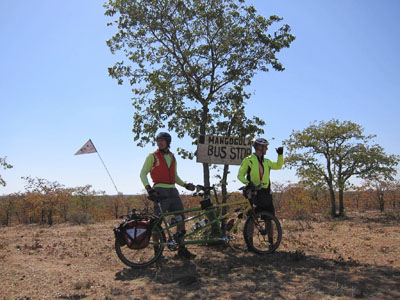Beyond the Bike
The Bicycle - A merit good and an integral part of sustainable transport solutions?
A recent economic study1 found that bicycle ownership can boost household income in sub-Saharan Africa by 35%. I may be biased given my passion for cycling but I think there are indeed some very strong economic arguments for encouraging more bicycles both in the developing and the developed world.

The bicycle: more than just a mode of transport
More about the developed world as I approach Europe next year. In the meantime, it is worth noting that, with oil likely to remain around 100 bucks indefinitely; the relatively short commute that most urban dwellers carry out and the obesity problem plaguing our health systems, the positive externalities from getting 'on your bike' are massive. At least Boris Johnson agrees with me as he continues to incentivise private motorists and tourists alike to take up cycling.
Anyway, let us think more about the developed world for the time being. Transport policy is an essential component of any successful government policy looking to promote sustainable development. With incomes and populations on the rise, transport infrastructures simply won't be able to cope if the swelling ranks of middle classes in the developing world enjoy the same kind of car ownership ratios considered normal in the West. This is without considering the impact on the environment. In Zambia, despite high import duty on cars, Toyotas and other Japanese models continue to flood into the country. The existing road infrastructure is already grid locked at rush hour around the major cities. It would be unsustainable for the next government here to try and simply satisfy the increasing demand by laying more tar.

No congestion on a bike - this guy was riding on a bike donated by the US AID.
It is becoming increasingly clear to me so far on my journey that successful government or indeed non-government schemes designed to boost economic development should be judged primarily on long-term sustainable employment creation. With formal employment in Zambia of c. 450,000 in a potential labour force (if all adults of working age were willing and able to work) of nearly 6 million*, providing skills & incomes are surely the best way to empower a country to look after itself.
I had all this in mind when I visited Zambikes, the Lusaka based social enterprise that Beyond the Bike had partnered with for the group ride from Livingstone to the Copperbelt region, where the main charity projects are based. Research1 suggests that bicycle ownership in sub-Saharan Africa could boost household income by some 35%.


Bamboo - renewable, strong & light. Perfect for a bike....and more reliable than a bus
Anton, who ran the plant gave me a tour and patiently talked me through the production process. Having cut the bamboo, it is then treated, dried and put in a jig. It is then wrapped with hemp and epoxy, dried and sanded to perfection. Finally, it is painted wit two coats of poly-euothene coat to keep it 100% weatherproof. Interesting, a group at Columbia University2 in New York are researching the viability of ramping up bicycle manufacturing from Bamboo. Local material, Local labour with some imported technology (built in Asia) and then exported across the world seems to be a sensible model for enterprises here to take.
It is a labour intensive process which is surely what government should be encouraging here given the relative price of labour v capital and high rates of unemployment. The finished article, fitted with carbon forks and high quality shimano componentry, makes for a great ride and is making inroads into the US & European market at $1500 a bike. I'm looking forward to getting one when I get home, if I have any money left over!!
As well as the signatory bamboo bikes designed for the export market, their standard model "Amaka Sana" (meaning very strong) is simply made from sturdy steel and assembled at the same plant, providing an affordable transport solution to local Zambian. They also make a "Njovu" model (meaning Elephant), designed to carry 300 kgs. Given how many goods are transported to market on bicycles, this model is a great help to traders trying to get a competitive advantage on their rivals. Their other model, the "zambulanace", is used to help get rural patients and pregnant women to clinics. There are over 900 Zambulances throughout Zambia right now being used to help sick & pregnant people get to and from rural clinics. A good example of a merit good with positive externalities!
All the best to Dustin & his team with the next 5 years in Zambia, hopefully expanding production & providing sustainable employment in this region. The world needs more people like him. You can find out more about Zambikes at aker.org.
1 - http://www.bicyclepotential.org/2009/04/quantitative-experiments.html
2- Columbia University Earth Institute - Bamboo Project
Further reading:
The Economist: On your bike - A scheme to encourage cheap transport on two wheels
Interesting video about the positive impact of bicycles on education:
http://www.worldbicyclerelief.org/stories_and_news/annual_appeal.php
When you subscribe to the blog, we will send you an e-mail when there are new updates on the site so you wouldn't miss them.

